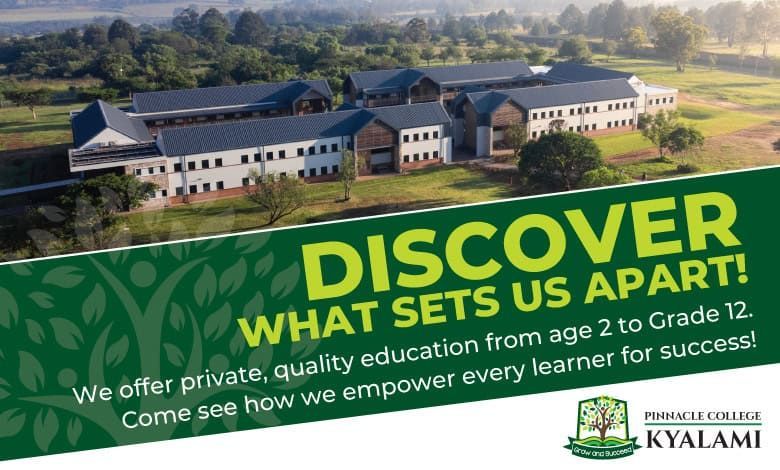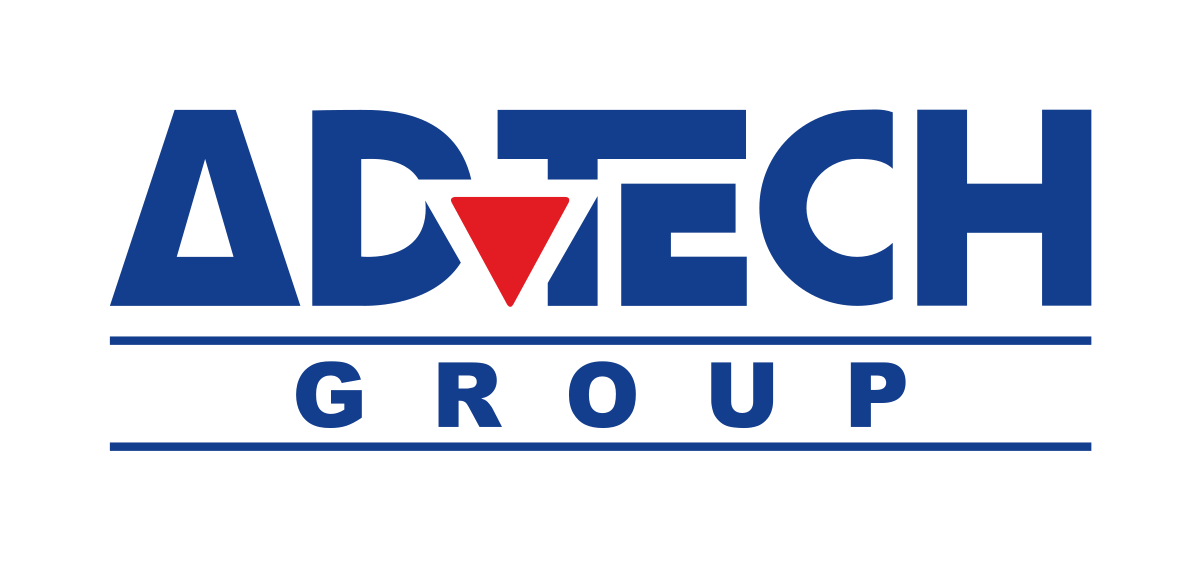ADvTECH digital journey – the goal is uninterrupted learning
Article provided by Microsoft
As we reflect over the last 2 years and the COVID-19 pandemic, it is surreal to see how far we have come and how resilient we have become. It is perhaps even stranger to suggest that the COVID-19 pandemic has become the catalyst to even better teacher and student engagement and innovation.
Looking at an organization like ADvTECH schools division who are an experienced educational provider with 9 brands in the schools division and 9 brands in the tertiary division, we see how they have showcased their innovation and technological prowess using the Microsoft 365 suite. As a part of this suite Microsoft Teams was used to ensure students and teachers remain connected and engaged during hard lockdown levels where they could not attend classes in person. What is even better is the agility of the Microsoft 365 suite, its apps, and its immense collaborative ability which has given teachers the ability to still make use of the platform as students returned to the classrooms.
The goal is uninterrupted learning
When telling the ADvTECH schools division story and their drive to ensure uninterrupted learning we need to understand that when the Covid-19 pandemic hit the shores of South Africa, many of their schools were in the middle of a school holiday. Caryn Bakewell, a Maths teacher at Crawford International Ruimsig remembers the experience by saying, “For both educator and the student it was really tough to transition to remote learning because of the time frame we were under. We went into hard lockdown in the middle of a school holiday, so we had to start a brand-new term 100% online. As staff we received training and support from the ADvTECH schools division central academic team as well as having practice runs. The students and their parents were all sent how to guides which equipped them to understand what to do on the first day of school. There wasn’t a convenient way to ease into being online but as a team we made it work.”
Let us look at it this way, students that are in school today have never lived in an era where there’s not been technology right at their fingertips, so one could say it has been a long time coming that a great platform such as Microsoft Teams is introduced into schools. For ADvTECH schools division, Teams has probably been the most important platform to ensure uninterrupted learning for students. As a communication and collaboration platform it allows students and teachers to have remote class sessions, one on one sessions, receive and submit assignments, and most importantly stay engaged. Teams is also not a standalone platform but integrates seamlessly with over 700 applications which is designed to give its user great engagement opportunities.
Collaboration made easy with Microsoft Teams
An important element when looking at Teams is collaboration, the platform offers the broadest and deepest toolkits for content creation and personalized learning for students which makes modern classroom collaboration a breeze. For ADvTECH schools division, Teams helped teachers manage their daily workflows a lot easier than ever before. Using Teams, they were able to make announcements quickly and efficiently, share resources and class notebooks, create, upload and grade assignments. Because Teams is a digital hub, many if not all the students at the different schools could work together anytime, anywhere, and on any device. It also helped the teachers maintain a good connection with their students and collaborate effectively with their peers. Many of the teachers at ADvTECH schools division loved the collaboration Teams had to offer. Mmaki Malepe, a teacher at Trinityhouse Glenvista said “The biggest feature Microsoft Teams has is one that encompasses the 21st century skill that we teach which is collaboration. Teams has this incredible feature where we can have breakaway rooms in various subgroups so when we are doing a task in class we able to breakdown into smaller groups and complete the tasks.”
There are many elements in Teams which were used with great success during the hard lockdown, many of these features are not solely restricted to remote learning and most teachers and schools have decided to incorporate them into their in-person classes. A standout feature which teachers spoke highly of was the ability to record lessons. This was found to be the game changer for student as they could now watch and catch up on any missed work. It also helped the teachers to assess their teaching methods, how students engaged in the classes, and in turn helped to give teachers an indication on the students to follow up with.
Abbotts College in Johannesburg South is one of the schools that found great benefit in recording the class sessions on Teams – Yumna Moosa Deputy Principal at the school says “through recorded lessons, revision sessions have been made a lot easier because students are able to watch the recorded lessons and catch up on any work they have missed. It also improves my teaching because I am able to go back and view my lesson to see if I have done my best when it comes to interaction with my students and to gauge their level of interaction.”
The chat function on Teams has been a huge advantage to both teachers and students, in many instances it has given students the confidence to ask teachers questions where they would either be too shy or nervous to speak in front of their peers. Secondly, instead of students only being able to ask questions during school hours, while studying at home they would ask their teachers a question on the chat function and get an immediate response.
Caryn Bakewell Maths teacher at Crawford International Ruimsig shares that “the chat function in Teams has opened up a whole new world to us as educators in terms of academic support. A student may not be comfortable raising their hand and asking a question in class, and now they can access the chat function and send a private message to the teacher with their question. This has been great in bridging that gap so we can help the students that need the help the most.” This helped ADvTECH schools division become better focused on the learners and give them an educational advantage during an uncertain period.
Educators use a variety of apps to improve learning outcomes
An incredible accomplishment that the ADvTECH schools division need to be proud of is that in a short space of time the teachers and schools were able to make the most of the Teams platform and successfully integrate several Microsoft apps onto Teams for an incredible learner and teacher experience. Some of the apps that were integrated successfully were Sways, Forms, Insights, & Whiteboard.
Ilze Kellerman a teacher at Pinnacle College in Waterfall enjoyed using Microsoft Sways as it was an easy way to create and share class summaries, interactive reports, presentations, media resources, and many other elements, that support the learning journey. She says that “Sways was a useful tool in having a record of the whole lesson. I could have my lesson notes and videos that I showed the students incorporated onto the tool as well as links to some quizzes we had done. It also helped students to go back to the Sway to recap and take the quizzes as a way of revision. An added beauty to Sways was I could add it as a tab to certain channels within Teams which helped to keep all the content organized”
Microsoft Forms has proven to be an effective tool for both teachers and students. With Microsoft Forms, you can create surveys, quizzes, and polls, and invite students to respond to it using almost any web browser or mobile device. With Microsoft Forms you get real-time results as they are submitted, use built-in analytics to evaluate responses, and export results to Excel for additional analysis. Microsoft Forms was and is still being used by teachers to create quizzes, assignments, and provide feedback.
Teachers at ADvTECH schools division loved the way Forms integrated into Teams as it kept record of all student marks and provided them with a holistic picture of the students’ progress and understanding.
As one could imagine a major adjustment for students was having the self discipline to attend the online lessons and engage while trying to conquer all the distractions which being at home presented. To monitor children’s engagement in the different classes Microsoft Insights for Teams came to the rescue.
Yumna Moosa deputy principal at Abbotts College in Johannesburg South stressed the importance of the Microsoft Insights app in Teams. She shares how “as a teacher I can see when my students login because sometimes they are not able to join a live lesson, but I can see when they logon to access the material and how long they engaged with the material. This helped to provide great feedback to the parents on the level of engagements the students had and became easier to create a roadmap of success for each student.”
A “stunning tool” as Natalie Grove a Science and Technology teacher at Crawford International Ruimsig puts it was the Microsoft Whiteboard app. For a teacher like her that relies on illustrations and drawings to best explain her lessons, she felt the Microsoft Whiteboard was a great tool for her to be effective in her classrooms. She says that “the Microsoft Whiteboard application was stunning especially the fact that it is an infinite whiteboard, meaning I could do something on one part, while do something else on another part. I could send screenshots and PDFs of what I was doing to the students which made this a fantastic resource. It is still an application I enjoy using post the hard lockdown.”
Leveraging Microsoft Teams to support students’ mental well-being
ADvTECH’s schools division central academic team and brands understood that as anxieties were rising, they needed to ensure that the students’ mental wellbeing was being monitored. As social beings that rely on cooperation to survive teachers and schools understood that remote learning would take its toll on the students over time. So, they decided not to just use Teams as a method to teach but to use it as a tool to engage with their learners.
The chat function worked incredibly well in this regard and in many instances, teachers encouraged students to share how they are feeling using emoji’s, GIF Images, one liners, or just a word. They could do this by dropping it on a group chat or in a private chat to the teacher. Dean Barber, a Technology teacher at Trinityhouse Glenvista says that “it was a priority that we would give the students the opportunity to tell us how they are feeling; we would encourage them to use emojis, GIFs, or type a sentence, it didn’t matter the main thing was that there was an opportunity for the students to express themselves” Many teachers such as Daniella de Wit from Pinnacle College in Waterfall had show and tell sessions using Microsoft Teams. Students would take the class on a virtual tour around their house, meet their pets, and get a glimpse of their room she described it as a fantastic way for students to know that they were not alone.
The ADvTECH schools division took full advantage of Microsoft technologies to advance the education of their students. The Microsoft 365 suite has been an effective, productive, collaborative, and engaging tool for ADvTECH schools division. This incredible suite of Microsoft products has given the organisation’s educational brands the ability to ensure that learning during hard lockdown was uninterrupted.
Microsoft is a proud Partner of the NSBC
ADvTECH Updates











